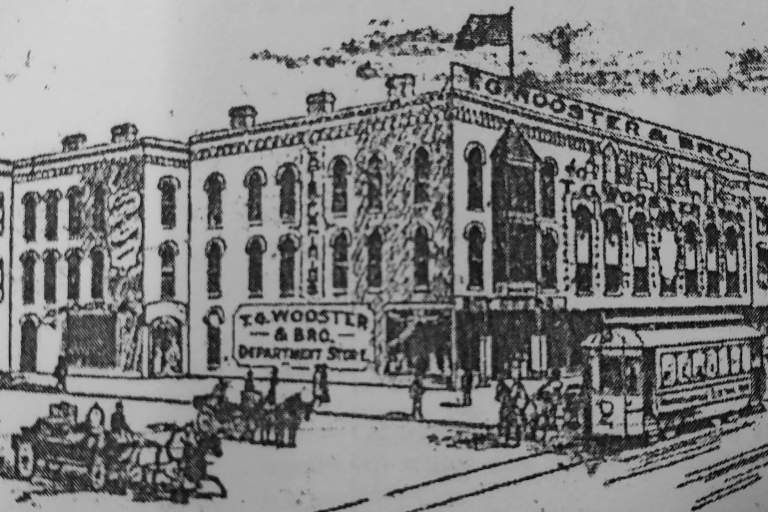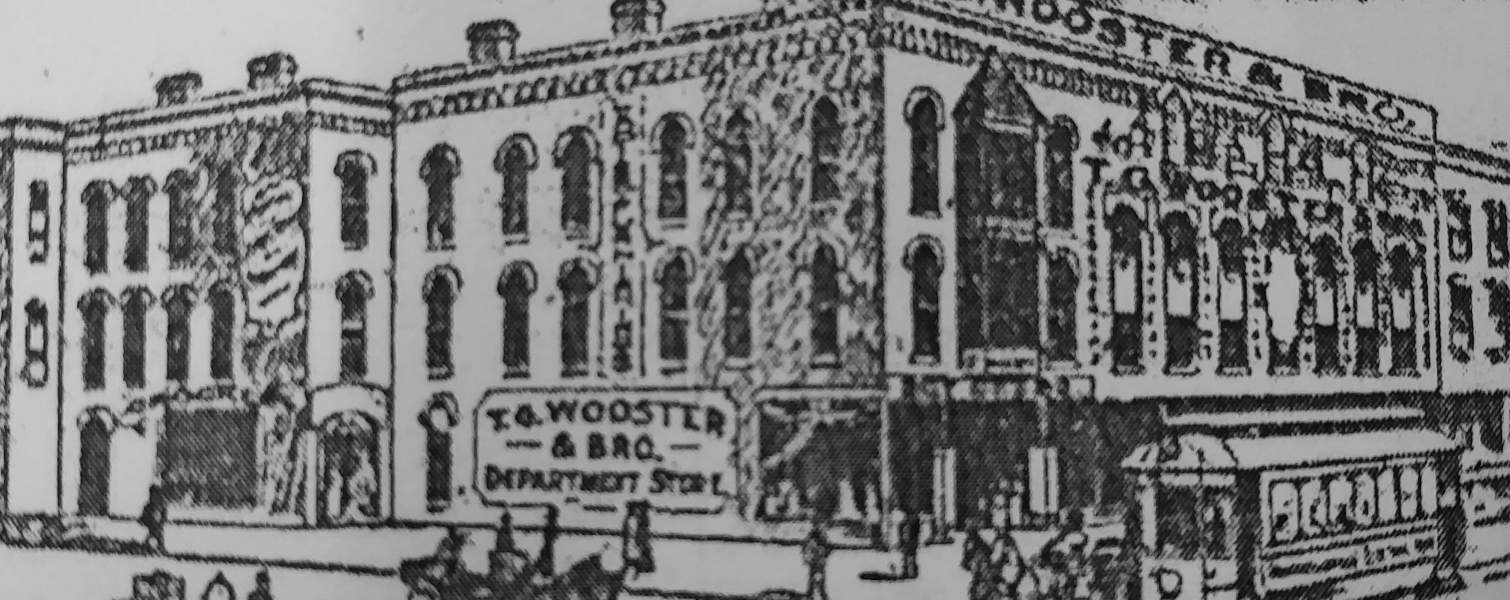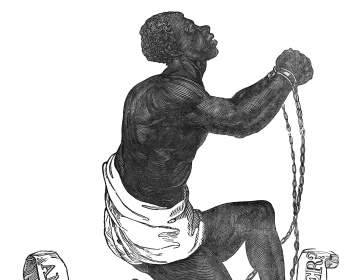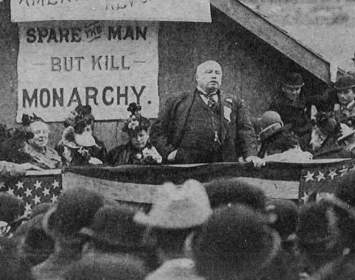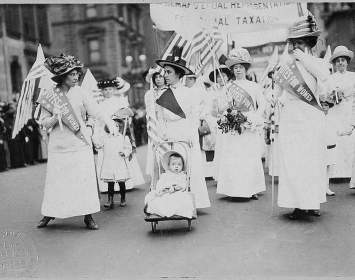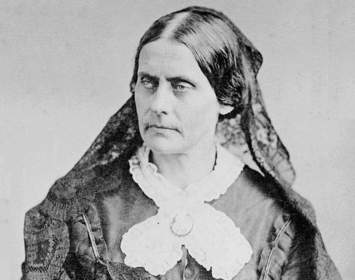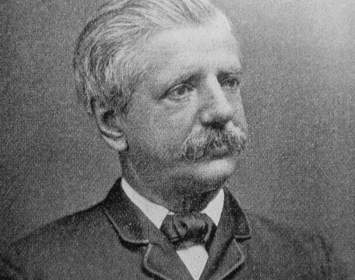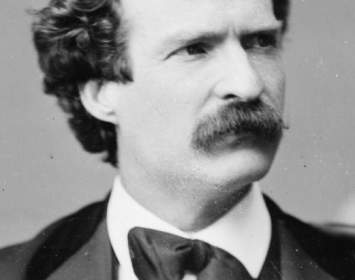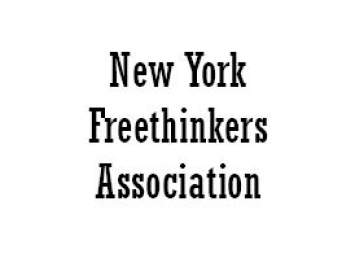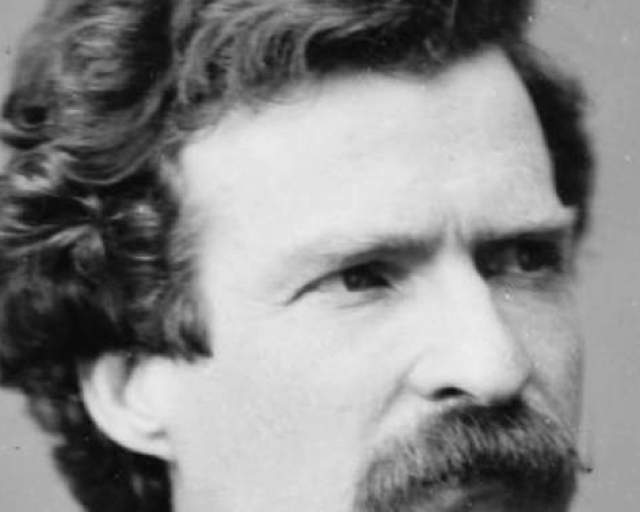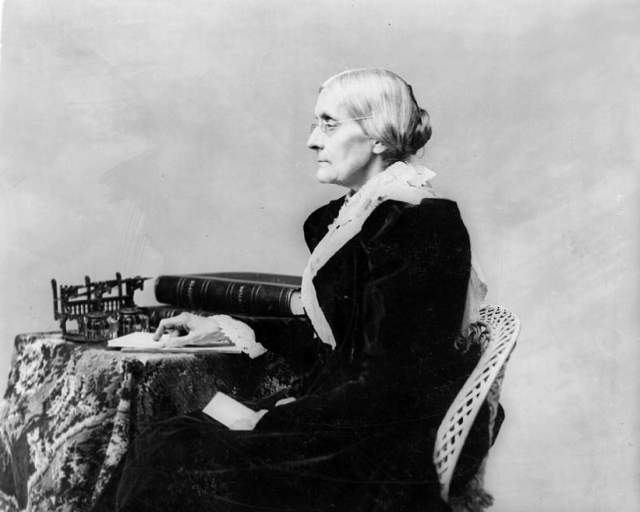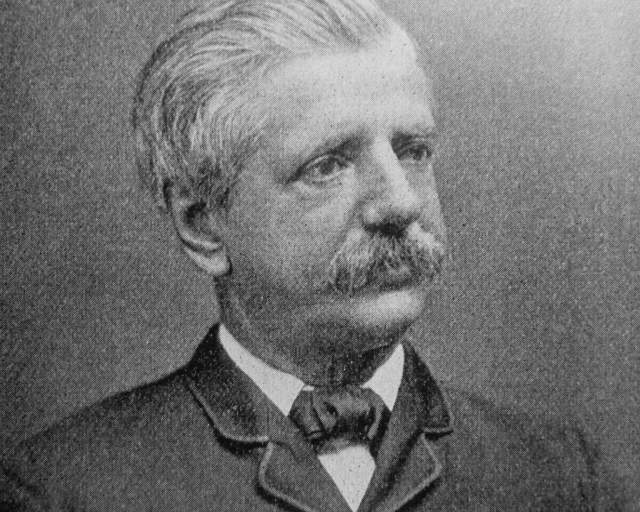Metropolitan Hall was an opera house in Hornellsville (now Hornell). Located at the northeastern corner of Main and Seneca Streets, it is known to be the site of a March 20–21, 1886, lecture series by minister-turned-freethinker Charles B. Reynolds and his wife.
With a footprint of 40 by 100 feet and seating 600, Metropolitan Hall was actually the smaller of two opera houses in Hornellsville. Contemporary accounts suggest that the hall was popular partly because it was on only the second floor of the building it occupied, hence a shorter climb than its competitor, the Shattuck Opera House, which occupied the third floor of its building.
Located above 143–163 Main Street (the Babcock Block), Metropolitan Hall was built in 1866 by local business leaders Walter G. Rose and Philip Van Scoter. The space was in such demand that the first event, a political gathering, was held in October 1866 before construction was complete. Metropolitan Hall opened formally on November 2, 1866.
Traveling theatrical companies often played the Hall. In one of the first such events, celebrated actress and friend of Robert Green Ingersoll Laura Keene presented Our American Cousin, reprising the role she had played at Ford’s Theatre in Washington, D. C., on the night President Abraham Lincoln was assassinated.
The Hall hosted many famous speakers of the day in addition to freethought speakers. Mark Twain spoke there on January 20, 1870. Suffragist Susan B. Anthony debated woman's suffrage against a local attorney on May 19, 1870. Publisher Horace Greeley spoke on February 16, 1872. Abolitionist and suffragist Julia Ward Howe, author of The Battle Hymn of the Republic, spoke in June 1873.
The Building and Site. On December 26, 1879, Metropolitan Hall was badly damaged by fire. It was rebuilt but apparently never regained its prior stature. By 1900 the Hall had been taken over by T. G. Wooster & Brother, a notions and fancy-goods merchant that also occupied a ground-floor storefront at 151 Main Street.
In 1914, the Wooster complex was partly replaced by the Steuben Trust Company at 82 Main Street. (Apparently Hornell street numbering had been reorganized, so that the formerly odd-numbered side of Main Street was now even.) Steuben Trust occupied the site until 1999, when it moved to a new headquarters in downtown Hornell. Adjacent to the Steuben Trust Company rose the Hollands Building, whose original history and purpose are unknown. Today both structures have been renovated to house the Hornell City Hall.
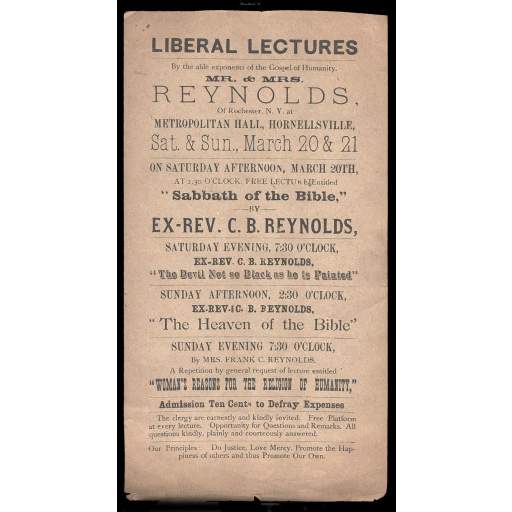
Handbill promoting C. B. Reynolds lecture
Handbill promoting March 20–21 freethought lectures by Charles B. Reynolds and wife at Hornellsville's Metropolitan Hall. From the collection of the Robert Green Ingersoll Birthplace Museum.
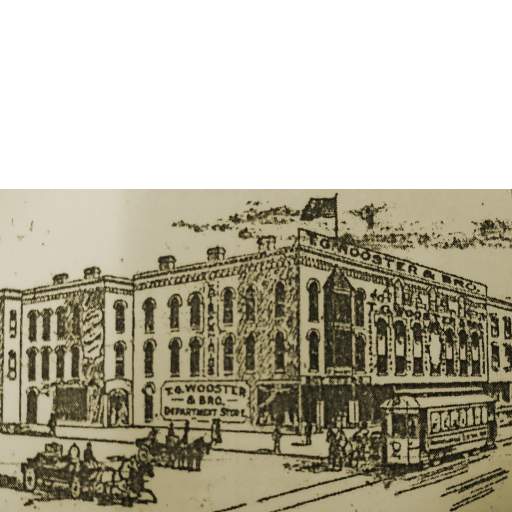
Metropolitan Hall formed part of this store
This image from April 1903 shows T. G. Wooster & Brother department store. One of the storefronts comprising this property was the former Metropolitan Hall; it is possible, though not certain, that the former meeting hall occupied the second floor of the section with the hall windows visible immediately above the street car. Note streetcar service, which at that time ran down the center of Main Street.
No images of Metropolitan Hall are known from its years of independent operation. Image courtesy Southern Tier Library System.
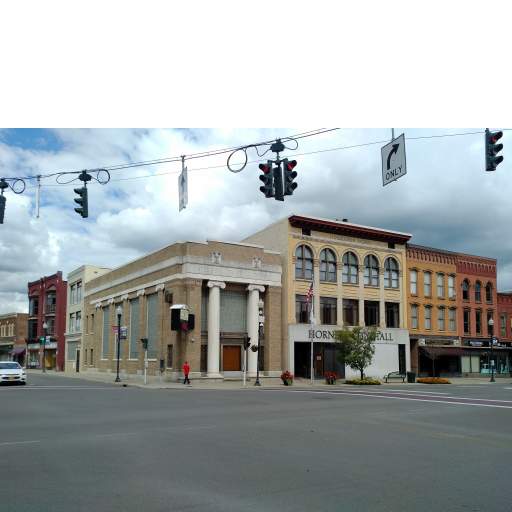
Metropolitan Hall site today
The Metropolitan Hall site as it looks today. Perspective is similar to the Wooster and Brother store image. The Steuben Trust Company building (left) and the three-story Holland's Building (center) now comprise Hornell's City Hall complex. The beige structure with four columns of windows immediately to the right of the Holland's Building may be the same structure seen at the right-hand edge of the Wooster and Brother store image.
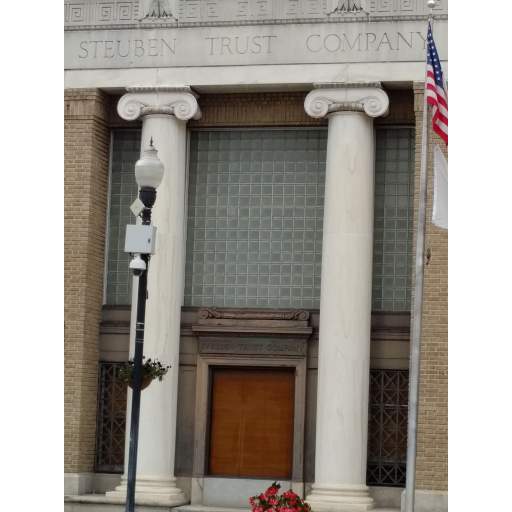
Detail of Steuben Trust Company building
The building now occupying the northeast corner of Main and Seneca Streets, now part of Hornell City Hall, housed a bank from 1914 until 1999, when the Steuben Trust Company moved to new quarters in downtown Hornell. The bank continues to operate today.
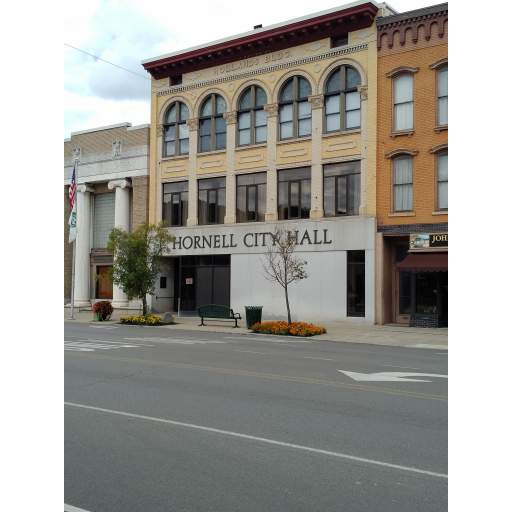
City Hall Complex
This reverse view of the Hornell City Hall complex favors the former Holland's Building. As noted, the beige structure at far right may date back to the Wooster and Brother complex that included the old Metropolitan Hall.
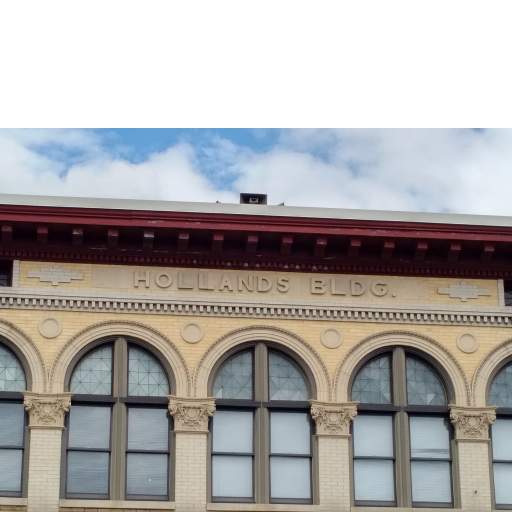
Holland's Building detail
The main structure of Hornell City Hall was once the Holland's Building. Who Holland was, and what manner of business he conducted here, are currently unknown.
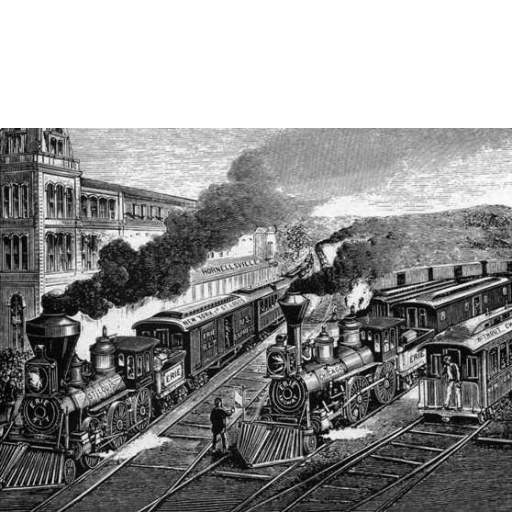
Hornellsville, 1880s
Erie Railroad promotional art depicts Hornellsville in the 1880s.
Associated Historical Events
Mark Twain Gives Unknown Lecture in Hornellsville
January 20, 1870
Lectures by Rev. and Mrs. C. B. Reynolds in Hornellsville
March 20–21, 1886
